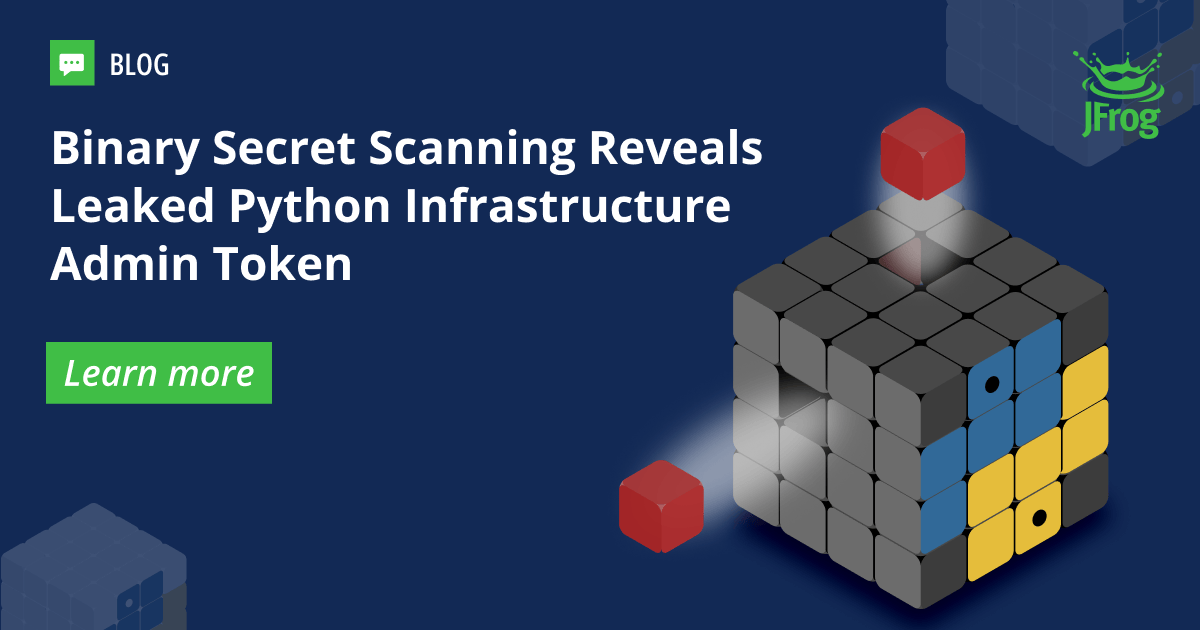Python could have triggered global apocalypse by mistake
TL;DR: Imagine a world where your favorite social media platforms go dark, financial systems crash, and even space exploration grinds to a halt. This dystopian scenario almost became a reality thanks to a single leaked access token that could have given malicious actors the keys to the kingdom—the kingdom being the entire Python ecosystem. Thankfully, disaster was averted, but the close call serves as a stark reminder of the fragility of our software-dependent world and the importance of robust security measures.
A Software Glitch Heard Around the World (Almost)
Remember those disaster movies where the world descends into chaos because of a catastrophic event? Now imagine that instead of an asteroid or alien invasion, the culprit was a simple coding error. That's the hair-raising scenario that played out when security researchers at JFrog discovered a vulnerability that could have brought the digital world to its knees.
At the heart of this near-miss apocalypse was Python, the ubiquitous programming language that powers everything from web services to AI applications. A leaked GitHub Personal Access Token, inadvertently left exposed in a public Docker container, could have given malicious actors unfettered access to Python's infrastructure, potentially allowing them to inject malicious code into the countless systems that rely on it.
Python: The Silent Powerhouse of the Digital Age
To grasp the potential devastation of such an attack, it's crucial to understand Python's pervasive influence. This versatile language is the backbone of countless websites, applications, and critical systems:
- Social Media: Platforms like YouTube, Instagram, and Facebook rely heavily on Python.
- Artificial Intelligence: Python is the language of choice for machine learning and AI development.
- Cloud Computing: Cloud giants like Amazon, Google, and Microsoft rely on Python for their infrastructure and services.
- Finance: Financial institutions use Python for everything from algorithmic trading to risk management.
- Government and Infrastructure: Government agencies and critical infrastructure systems depend on Python for various tasks.
Had the malicious actors gained control of Python's infrastructure, they could have wreaked havoc on a global scale. Financial markets could have crashed, social media platforms could have gone dark, and essential services could have been disrupted. It would have been a digital apocalypse.

Averting Disaster: A Narrow Escape
Thankfully, disaster was averted thanks to the vigilance of the JFrog security research team. As part of their ongoing efforts to secure the software supply chain, the team routinely scans popular software packages for vulnerabilities. In this instance, their diligence paid off. They discovered the leaked access token lurking within a compiled binary file, a place where many security measures fail to look.
The discovery highlights a critical weakness in many organizations' security practices. While scanning source code for vulnerabilities is essential, it's not enough. Malicious code can be hidden within compiled binaries, effectively bypassing source code analysis tools. To truly secure their systems, organizations need to adopt a comprehensive approach that includes scanning both source code and binaries.
Lessons Learned: Building a More Resilient Digital World
The near-miss Python apocalypse is a wake-up call for the entire tech industry. It underscores the interconnectedness of our digital world and the devastating consequences of even seemingly minor vulnerabilities. To prevent similar incidents in the future, we need to prioritize security at every stage of the software development lifecycle. This includes:
- Robust Security Practices: Developers need to adopt secure coding practices and use tools to identify and mitigate vulnerabilities early in the development process.
- Comprehensive Scanning: Security teams need to implement solutions that scan both source code and binaries for vulnerabilities, ensuring that no stone is left unturned.
- Collaboration and Information Sharing: The tech industry needs to foster a culture of collaboration and information sharing to stay ahead of emerging threats. Platforms like GitHub Security Advisories provide a valuable forum for reporting and addressing vulnerabilities.
The Python doomsday device may have been disarmed this time, but the threat remains. As our reliance on software grows, so too does the importance of robust security measures. By learning from this near-miss, we can build a more secure and resilient digital world for everyone.
Source

Related content

Vulnerabilidad crítica en MongoDB está siendo explotada activamente y permite que atacantes no autenticados se roben los datos: parcha ahora ya!
Si pensaste que el sufijo "Bleed" había pasado a mejor vida el 2014 con Heartbleed, MongoDB te trae noticias nostálgicas (y bien fomes, como decimos en Chile) para tu equipo de seguridad. Una vulnerabilidad crítica, ahora tristemente bautizada como MongoBleed (CVE-2025-14847), se está explotando brigidamente en el mundo
Read the full post →

Critical vulnerability in MongoDB is actively exploited and allows unauthenticated requests to steal data, patch now!
If you thought the "Bleed" suffix died in 2014 with Heartbleed, MongoDB has some nostalgic news for your security team. A critical vulnerability, now infamously dubbed MongoBleed (CVE-2025-14847), is currently being exploited in the wild. It allows unauthenticated attackers to treat your server's RAM like an


